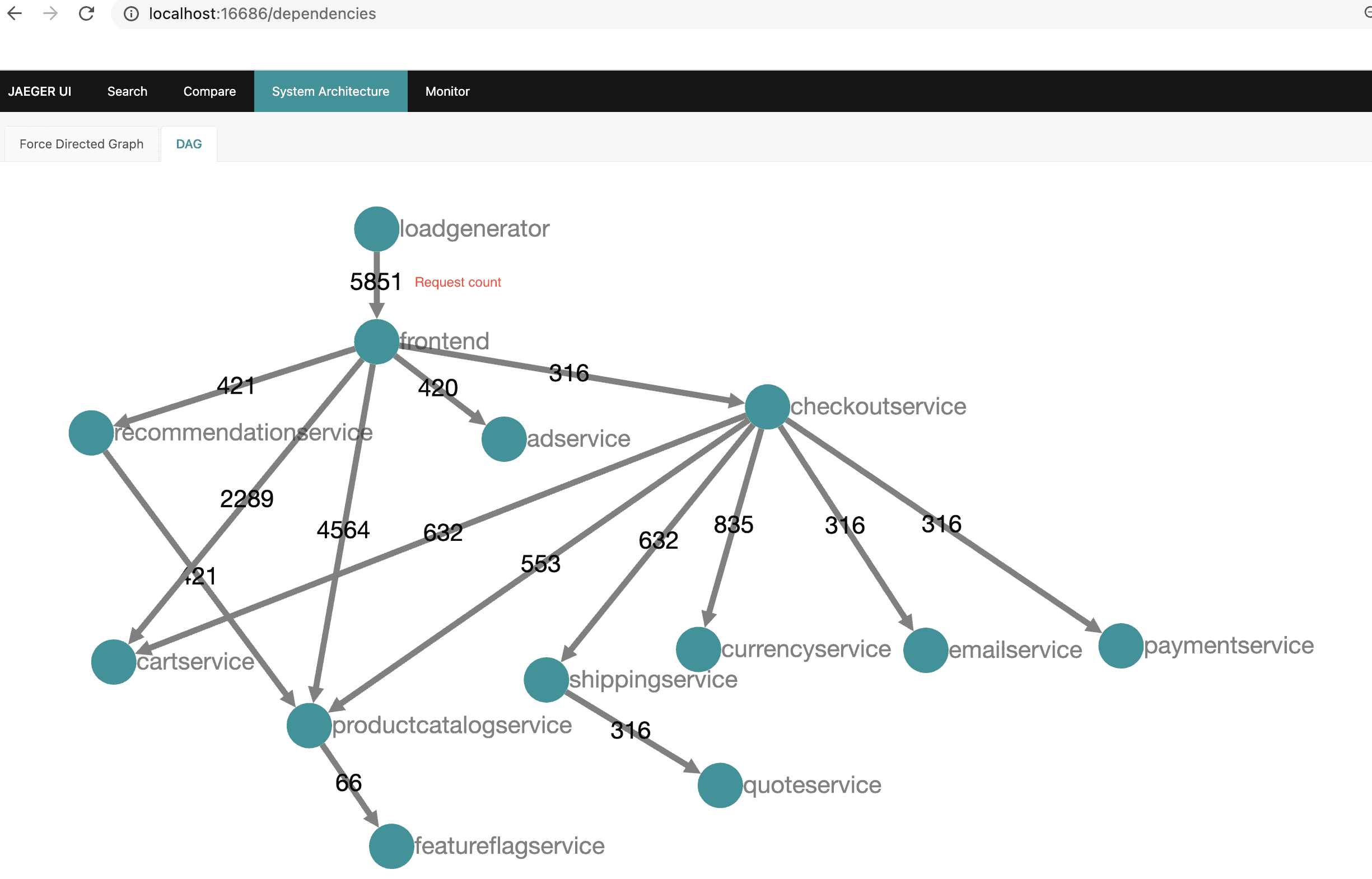Cross-post from the OpenTelemetry project blog by Austin Parker
Earlier this year, we announced a project to build an OpenTelemetry Demo, representing the breadth of OpenTelemetry features and languages. Today, the Demo SIG is proud to announce OpenTelemetry Demo v1.0! With this demo, you’ll be able to quickly run a complete end-to-end distributed system instrumented with 100% OpenTelemetry Traces and Metrics.

One of our primary goals of this project has been to create a robust sample application for developers to use in learning OpenTelemetry, and we’re proud to say that we’ve done just that. Every OpenTelemetry language SDK except Swift is represented in this release – yes, even PHP! We’ve built complete tracing flows that demonstrate a breadth of common instrumentation tasks such as:
- Enriching spans from automatic instrumentation.
- Creating custom spans for richer, more useful traces.
- Propagating trace context automatically and manually.
- Handling observability baggage in order to pass attributes between services.
- Creating attributes, events, and other telemetry metadata.
We’ve also integrated OpenTelemetry Metrics across several services to capture runtime and business metric use cases.
Now, it’d be enough to just provide a great demonstration of OpenTelemetry, but one thing we wanted to focus on for our 1.0 release was showing not just the ‘how’, but the ‘why’, of OpenTelemetry. To that end, we’ve built a framework for implementing failure scenarios gated by feature flags. In addition, we include pre-configured dashboards and walk-thrus in our docs on how to read and interpret the telemetry data each service emits to discover the underlying cause of performance regressions in the application.
Another goal of this demo is to streamline the ability of vendors and commercial implementers of OpenTelemetry to have a standardized target for building demos around. We’ve already seen quite a bit of adoption, with five companies including Datadog, Dynatrace, Honeycomb, Lightstep, and New Relic integrating the community demo application into their product demos (you can find a list here). We hope to encourage further contributions and collaboration along these lines.
However, just because we reached 1.0, that doesn’t mean we’re stopping – this demo is a living artifact, one that we intend to continue to improve. In the coming months we plan to continue to iterate and improve coverage of metrics and logs as more SDKs reach maturity.
We also hope to add new instrumentation scenarios and patterns by extending the functionality of the application – queues and async processing of requests, a hosted version in order to explore the demo with zero setup, adding in support for Swift, and more.
We’d love for you to take the demo for a spin and let us know what you think! Check out the docs, or run the demo using Docker or Kubernetes, and let us know your thoughts. If you’d like to contribute, please file an issue on GitHub or join us on the CNCF Slack in #otel-community-demo.